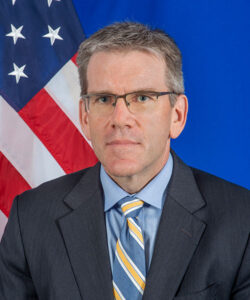Columns
Human Rights Day: Are we doing enough?
It is through our continued commitment to universal human rights that we best honour UDHR principles.
Dean R Thompson
In the aftermath of the horrors of World War II, over 50 nations came together to create a document recognising that all human beings possess inalienable rights. The United Nations adopted that document, the Universal Declaration of Human Rights (UDHR), in Paris on December 10, 1948, and it has served as a catalyst for peace, freedom, and equality ever since.
The enumerated rights in the UDHR, 30 in total, include civil and political rights such as the right to life, liberty, and privacy; freedom of expression and religion; freedom from slavery, torture, and arbitrary detention; and the right to take part in one’s own government and vote in free and fair elections.
In the nearly 75 years since the signing of the UDHR, no single nation has fully met the aspirations of the document. In the last few years alone, the United States’ struggle with racial equality has been on display for the world to bear witness. Gender inequality in America is evident in the disparity of wages between men and women. And our very own democracy has been tried and tested.
This Human Rights Day, it is time for all nations both to reflect on the meaning of the UDHR and to reaffirm our commitment to its principles. Since the UDHR was signed, the world has benefitted immensely from more democratic governments and from a rules-based world order that acknowledges the inalienable rights, equality, and liberties of all people. Yet today, universal human rights are regularly violated.
Russia’s unprovoked invasion of Ukraine has deprived a democratic nation of its sovereignty and the Ukrainian people of life and liberty. In Iran, authorities escalated violence against peaceful citizen protests. And in other areas of the world, autocracies continue to threaten fundamental freedoms. The pandemic has exacerbated these challenges, with some governments abusing emergency powers to further restrict their people.
Although the United States and other partners and democratic governments do not always succeed in achieving their own ideals, it is through our continued commitment to universal human rights, both domestically and internationally, that we best honour UDHR principles.
In Nepal, we are proud to partner with the government and civil society in protecting and upholding human rights. Nepal’s Constitution contains many protections for human rights, and while perhaps not yet fully realised, the Government of Nepal is an inspiring example in the region of its continued efforts to strengthen and protect the rights of its people.
We are happy to say that USAID’s development work with the Government of Nepal and local partners has led to greater access to healthcare and education, stronger democratic processes and social inclusion, and more opportunities for economic development. US and Nepal law enforcement have worked together to combat trafficking in persons and strengthen the rule of law. In the last two years, the US Secretary of State has recognised two Nepali women, Bhumika Shrestha and Muskan Khatun, for their outstanding leadership in fighting for the human rights of girls, women, and the LGBTQI+ community.
All governments should protect the human rights of their people. This is a basic concept, but one we must continually reiterate. Respect for the human rights of individuals within nations is an essential component of lasting peace and prosperity among nations. On this Human Rights Day, we must look inward and ask ourselves if we are doing enough to respect, promote, and protect the human rights and fundamental freedoms of all.




 13.16°C Kathmandu
13.16°C Kathmandu















